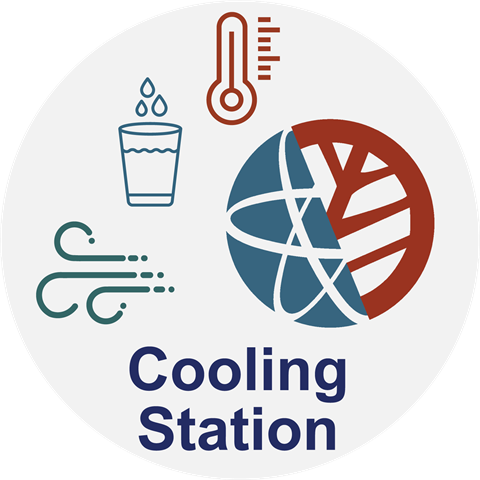Tips to Stay Cool This Summer
Published on September 30, 2024

Summer temps are predicted to be high again this year. “Extreme heat” is a period of high heat and humidity with temperatures above 90 degrees for at least two days. Extreme heat affects us all, but children, older adults, overweight individuals and field workers are at greater risk.
Mitigating the impacts of extreme heat can be challenging for those without air conditioning, but even those with cooled air need to make sure their system isn’t being overworked. Here are some practical measures to help beat the heat.
Behavioral:
- Close your windows and window treatments during the daylight hours.
- If the night is cool enough, open your windows after dark.
- Use fans strategically: move air from cooler areas to warmer areas. Put a fan in a window to blow in cooler night air.
- Set your ceiling fans to rotate counterclockwise in the summer.
- Using room fans with AC will let you set AC 4 degrees warmer without impacting comfort.
- Run your dryer at night or hang your clothes outside.
- Minimize stove and oven usage: grill outside (fire restrictions permitting), cook at night, use the exhaust fan to pull out heat.
- Create a cross breeze by opening windows or doors on opposite sides of the building.
- Close doors to rooms you aren’t using.
- Apply ice packs, cool water, or a cooling towel to pulse points (back of neck, wrists, ankles, underarms, etc.).
- Take cool showers and baths.
- Visit the White Rock Splash Pad (free), Walkup Aquatic Center ($3-$4.50), and community pools (memberships).
- Wear loose, lightweight, light-colored clothing.
- Limit physical activities.
- Visit a Cooling Station. Cooling Stations are public locations (think libraries, the Municipal Building, grocery stores, Senior Centers, etc.) where you can access air conditioning and drinking water in order to get relief from the heat. A handful of additional businesses have asked to be added to the Cooling Station list and will be identified by a door cling matching the graphic on this web page.
- Stay hydrated.
- Learn the signs of heat illnesses (heat cramps, heat exhaustion, heat stroke).
- Check in on family members and neighbors.
- Consider pet safety in the heat too.
- Park in shady places.
Technological (seek professional services where appropriate):
- Seal air leaks. Cold air in the winter might be more noticeable, but hot air leaks in too.
- Replace hot bulbs with LEDs.
- Consider installing honeycomb/cellular shades for added insulation against the heat.
- Window films or blackout curtains help to block the sun’s heat from entering.
- Install a programmable thermostat to better regulate your living spaces.
- Set your heat pump at a constant temperature to avoid ramping up and overstressing the unit.
- Maintain your cooling units by having service performed regularly. Replace or clean filters and dust off vents in your rooms.
- Tint your vehicle’s windows.
- Insulate, insulate, insulate. Attics are usually the easiest and can help buffer a lot. Crawlspace/basement are next and are more beneficial insulating against the cold of winter. Walls, though tricky and expensive, help finish out your insulation cocoon.
- Plant shady landscaping.
- On the breaking point of getting an AC? Consider a heat pump, which can double as a heating system if/when your heating system goes.
- Consider window visors which allow car windows to be cracked without letting rain in and which give the appearance of being closed.
Find more preparedness tips at https://www.ready.gov/heat. If your business would like to participate as a Cooling Station, reach out to Abbey Hayward (505-663-1779 or abbey.hayward@lacnm.us).